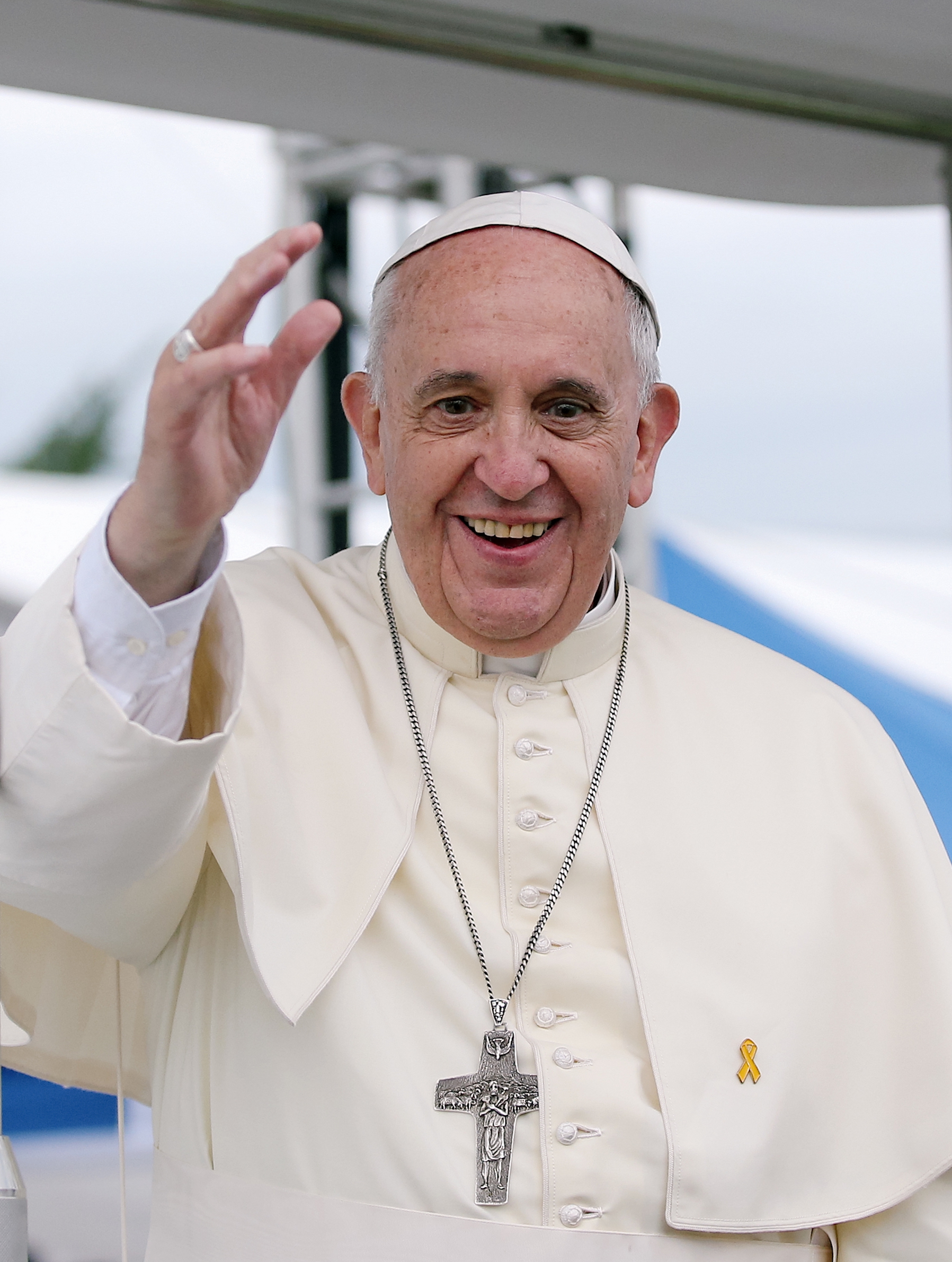
A man of surprises: Pope Francis seven years on
Ronnie Convery remembers the election of Pope Francis and considers what that dramatic evening has to teach us about his whole papacy.
It was early evening on March 13 2013 and I was watching news coverage of an extraordinary event: the conclave in Rome in session to elect a successor to Pope Benedict XVI as head of the Roman Catholic Church
The sudden resignation of the German Pontiff had shocked the world and the beautiful choreography of his departure from the Vatican to Castelgandolfo by helicopter (filmed almost like a Fellini masterpiece of cinematography) was still fresh in the memory.
Pundits had offered lists of candidates. Experts had hypothesised about the issues which would determine the conclave. Countless pages had been printed with details of the baroque workings of the process unfolding in the Sistine Chapel.

As I watched the screen that night, I was fairly certain that the smoke would be black. Surely the cardinals would not have had time to find a new Pope in the brief period they had been enclosed in the Sistine Chapel? Yet as I watched the screen, even in the dark Rome night it was very evident that the smoke was white.
Like most observers I was amazed that the conclave had been so brief – and the near universal view was that a short conclave could only mean one thing … a rapid consensus around the widely respected and erudite Archbishop of Milan, Cardinal Angelo Scola.
And so when the doors above St Peter’s opened, it came as a shock to hear the Cardinal Proto-Deacon pronounce the name, in Latin, that had not appeared on any list of the top candidates … Habemus Papam …Georgium Marium … Bergoglio …. qui sibi nomen imposuit … Franciscum.
George Mary? Who was this? Could it be an African cardinal whose name seemed unfamiliar? But Bergoglio rang a bell. Cardinal Bergoglio had been, by all accounts, much voted in the previous papal election which had chosen Josef Ratzinger. Now, at 76, this apparently uncharismatic Argentinian with a rather lugubrious face and a reputation for spartan living was Pope!
And the name? Francis … what a surprise!
In fact therein lay the clue as to what was to happen over the subsequent years. With Popes, a name sums up a programme and a vision.
Expectations of a John Paul III were high: that name would have implied a stout defender of tradition with a populist touch. A continuity candidate might have chosen Benedict XVII – in other words a Pope focused on shoring up a defiant Church against the winds of secularism and modernity… An innovator might have chosen John XXIV or Paul VII. But Francis? No Pope had ever been called Francis! Now the name of the poor man of Assisi was to be used by Peter, the successor of the Apostles.
It was to be the key to understanding the seven years which have followed. When the new Pope emerged, his smile dazzled. Gone was the sad look he sometimes wore as a cardinal. He appeared younger than his 76 years. He spoke good Italian and he seemed immediately at home in the role. But even in those first moments he was innovating.
The red silk cape of previous Popes was left in the wardrobe. The heavy golden-embroidered stole was missing. His first words were not in prayerful Latin, but chatty Italian …
“Buona sera!”
he beamed (and boomed!) through the microphone held by the Papal MC.
And, perhaps most amazingly of all, the new Pope, before blessing the crowd, called for hush, and in an extraordinary silent St Peter’s Square he bowed before his people and asked them to pray for him.

That phrase “remember to pray for me” has been a constant in Pope Francis’ discourses. His simplicity and commitment to the poor have softened the hardest anti-clerical hearts around the world, and his compassionate, pastoral approach to humanity has been acclaimed even in the secular world.
But while the PR successes have piled up in the mainstream media, the Francis era has arguably caused greater division than ever within the Catholic Church. Some senior figures – including cardinals – have been openly critical of the Pope (a thing unheard of for centuries). They charge that his priorities of mercy for all, outreach to refugees and dialogue with the traditional enemies of Christianity has led to confusion among believers. He is charged also with playing dangerous games with doctrine over his opening towards remarriage for divorcees and engagement with gay people. And his penchant for off-the-cuff quips which endears him to the media, sends some doctrinal purists into despair.
Even his personal lifestyle choices result in divided opinion. He opted not to stay in the Apostolic Palace like his predecessors, but rather lodge in Casa Santa Marta – a modern hotel-like structure within the Vatican walls. A sign of humility for some, a selfish choice for others who point out that the costs of securing a Pope in a semi-public residence far outweigh those of defending him in a remote palace.
As the child of Italian grandparents and Argentinian parents he displays traits of his cultures in his style of governance. On the one hand he is the elderly village priest from his nonna’s village in Piedmont as he advises spouses to make peace each night “even after the plates have flown” in an argument. On the other hand, he is the child of a Peronist tradition which does not tolerate opposition easily and expects full commitment from his collaborators.
A man of smiles and scowls, he seems to take satisfaction in provoking reaction and comment as he pushes forward with his vision of the Catholic Church not as an unsullied critic of the world’s errors but rather as a field hospital for damaged humanity.
Seven years this month a papacy of surprises began. And they show no sign of ending any time soon …
Like what you’ve read? Consider supporting the work of Adamah by making a donation and help us keep exploring life’s big (and not so big) issues!


One Comment
Taso Tofas
Good article.